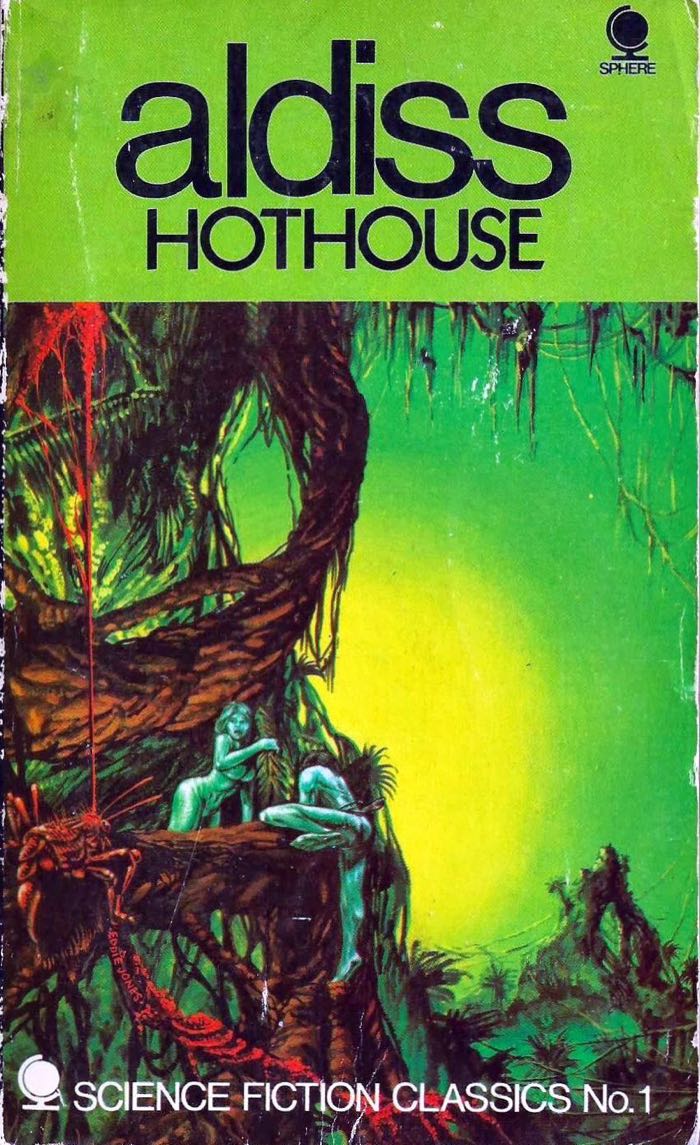Hothouse
Reviewed date: 2006 Jan 8
Rating: 2
309 pages
Awards: 1962 Hugo award for Short Fiction series
In the distant future, Earth's sun is old and about to nova. Civilization has long since collapsed, and indeed most animal life has expired: the vegetable kingdom rules the planet.
A few animal species remain, notably the ancestors of mankind, who live in the trees in their primitive societies. They try to survive on a planet whose plants are increasingly hostile--and increasingly mobile. Aldiss envisions a world where many plants evolve locomotion nearly equivalent to that of the animals they replaced.
One young human, Gren, falls prey to a parasitic morel. This morel is far evolved from its ancient roots: the morel is a thinking being, and in exchange for its parasitism it lends its brainpower to its victim. Gren, being unaccustomed to thinking much, is quickly overwhelmed by the mind of the morel. The clever morel analyzes and understands the world, and decides that in symbiosis with humans, he can rule the Earth. He forces Gren to try to carry out his planned conquest by locating nearby tribes of humans and subjecting them to parasitic morel mind control.
The morel's ambitions are thwarted by his incomplete understanding of the world and by Gren's unwillingness to fully cooperate, and all he manages to accomplish is getting Gren and his companions lost in an unknown and unexplored part of the world.
Overall Hothouse is not much of a novel. The plot tends to go nowhere; there is no overriding story. Further, the story is bogged down by the tummy-belly men: they are a group of men rescued by Gren and the morel and who accompany Gren on his journey. Their constant groveling and complaining are irritating, as is their strange manner of speaking. They are as irritating as Jar-Jar Binks and Gollum.
The other problem with Hothouse is its continual description of evolution as a conscious, volitional process. If Aldiss wishes to describe a future world where evolved vegetables rule the world, that is an intriguing idea indeed, but it is not logical to anthropomorphize the evolutionary process and pass it off as a conscious decision by the plants to change themselves. Hothouse rates just a two out of five.
